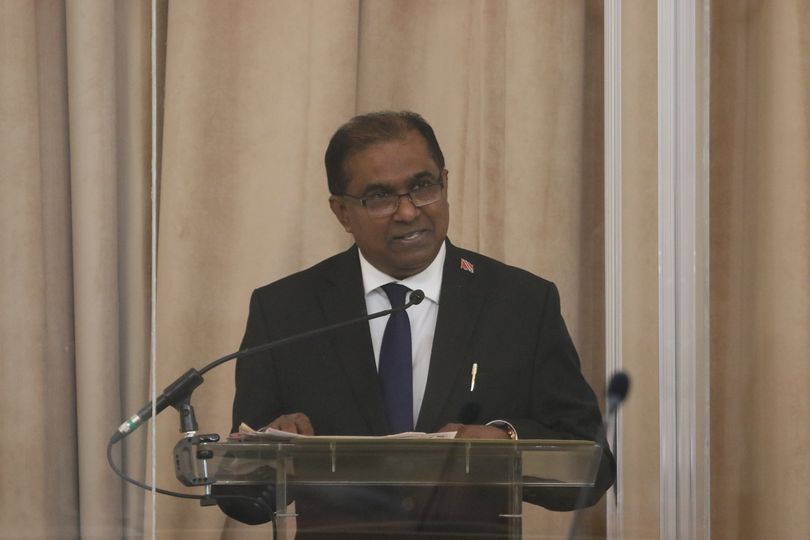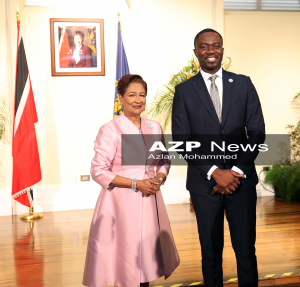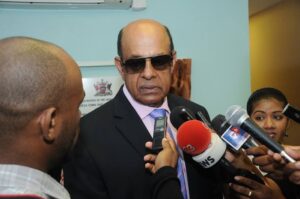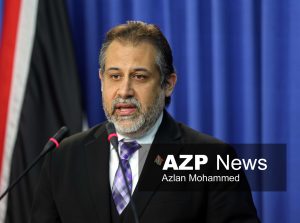
IN the arena of parliamentary politics, votes can often serve as critical indicators of a representative’s alignment, principles, and the political schemes at play.
MP Rai Ragbir’s decision to vote against the opposition bench, his own party, and in favour of the Whistleblower Bill, aligning with the People’s National Movement (PNM), has raised several questions about political integrity, democratic principles, and the true beneficiaries of such legislation.
In a surprising and contentious move, UNC MP Rai Ragbir recently voted in favor of the Whistleblower Bill, aligning with the PNM government and diverging from the opposition bench. This decision has raised eyebrows and stirred debate within the political landscape of Trinidad and Tobago. Ragbir’s vote will only be seen by sycophants of the PNM as a courageous stand for transparency and accountability but this is skewed, it has also sparked criticism and accusations of political disloyalty.
The Whistleblower Protection Bill according to the PMM is designed to safeguard individuals who expose wrongdoing within organisations, including government and private sector entities. Its intent is to create a transparent environment where corruption, fraud, and other malpractices can be reported without fear of retaliation. The bill aligns with global best practices aimed at enhancing accountability and integrity within institutions.
Some may question Ragbir’s motives as very questionable, suspecting personal or political gain. Aligning with the ruling party on such a crucial vote could lead to speculation about his future political ambitions or possible incentives.
Rai Ragbir’s decision to vote for the Whistleblower Bill in line with the PNM highlights the complexities and challenges within political parties. This is far from commendable, if you are part of a party it is equally important to maintain party cohesion and strategic unity. This incident underscores the delicate balance between individual conviction and collective responsibility in politics and has clearly undermined the faith we have put in Ragbir to work on our behalf in parliament.
Such a move has eroded his constituents trust between Ragbir and his constituents, his colleagues, as well as his leader trust in him, who expect him to represent the party’s collective interests. As a member of the UNC, Ragbir is expected to align with the party’s stance on key legislative matters. Voting against the opposition bench undermines party unity and can be seen as an act of political disloyalty.
Ragbir’s vote has also weaken the opposition’s negotiating power. By siding with the PNM, he has inadvertently strengthened the government’s position, reducing the opposition’s ability to influence amendments to the bill or negotiate for additional safeguards that they wanted to implement for all citizens.
As the political fallout from this decision continues, it will be crucial for Ragbir to address the concerns of his party and constituents. Open communication and a clear explanation of his rationale is expected to try to explain and mitigate some of the backlash and restore trust.
In any event moving forward, it is clear that the leader of the opposition can no longer trust MP Rai Ragbir. Who can after this move? This episode serves as a reminder of the intricate dynamics at play in legislative decision-making and the importance of navigating them with careful consideration with loyalty to your party, your leader and loyalty to your constituents. You are not representing your self in that position, it’s not just for self gain and making headlines.
In my opinion it was a bad move by a member of Parliament under the opposition benched. It was showboating and sour grapes, possibly from the embarrassment of the defeat that Ragbir got in the recent internal elections.
Neil Gosine is an insurance executive. He was appointed a temporary Opposition Senator, an ex-treasurer of the UNC and a former chairman of the National Petroleum Marketing Company of Trinidad and Tobago (NP). He holds a Doctorate in Business Administration, a Master’s in Business Administration MBA, BSC in Mathematics and a BA in Administrative Studies. The views and comments expressed in this column are not necessarily those of AZP News, a Division of Complete Image Limited.
![]()













